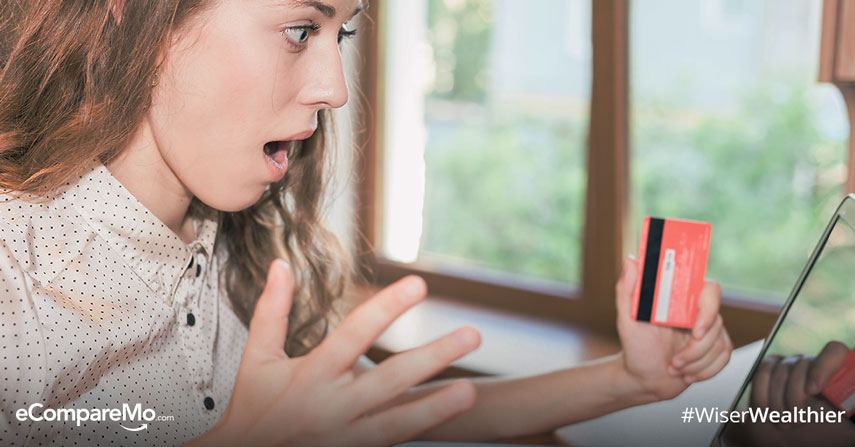Five Signs Your Credit Card Use Is Out Of Control
4 min readOwning a credit card automatically requires cardholders to be more responsible with their finances. It’s the unspoken rule for getting approved for a credit card. For you to own one means you have a good credit record, and it’s well within your status to maintain it.
A credit card is a tool, bringing convenience and privileges to those that make good use of it. Its irresponsible use, on the other hand, easily leads one to a cycle of credit card debt, a trap that most people have inadvertently fallen into at one time or another.

In the early stages, it’s hard to tell that your credit card use is becoming out of control. One missed payment seems innocent, and a couple of shopping splurges here and there doesn’t seem so bad. . . and it may not be, as long as your aware of it. In this post, we’re going to share with you the five early signs of out of control credit card use and what you should do to make sure a one-time problem doesn’t become a financial crisis.
1. You keep using your credit card to buy things you can’t afford.
Thanks to your credit card, it’s become too easy to indulge your impulsive spending habits. You’re basically spending money you don’t have on things you don’t really need, something that will get you in debt if it goes unchecked. You need to stop, or at least curb these impulses. Track your credit card purchases and analyze your spending habits. Set a monthly budget, including one or two splurges, and only use your credit card for what’s on the budget.
2. You only pay the minimum amount
It’s not bad to pay the minimum monthly amount, if you can’t pay the full amount for some reason it’s actually best to at least pay the minimum to avoid having to pay interest. But if you’re slowly accumulating credit card debt and only happen to be paying the bare minimum, then that’s something to worry about. Especially if you know you’re capable of paying off far more than that.
Putting off completely paying your credit card bill is the start of ballooning interests and decline of your good credit standing. Regain control over your debt by creating this sense of urgency. Set a specific payoff amount and due date for your remaining balance. Follow the amount and timeline you’ve set, and you’ll save yourself from the mess of getting in a cycle of debt.
3. Lack of information on your card’s terms and charges
This may be what’s keeping you in debt. If you’re using the cash advance option every time you’re short on cash, unaware of the interest and charges that come with it, then you’re easily and unknowingly sliding into credit card debt.
Cash advances are expensive, and it should not be used just anytime you run out of money. It’s only there for extreme emergencies, or only when you’re sure you can pay it back the soonest. Know your credit card fees and interests because you will be charged a fee as well as the full interest as soon as you withdraw that cash.
If you find yourself short on cash, you’d do better to apply for a personal loan than taking the limited amount of cash you have on your credit card, one that’s loaded with higher interest.
4. You missed one too many credit card payments
Skipped a credit card payment? It could be that you completely forgot or just neglected it but, either way, you’ll eventually have to own up to the responsibility of owning a credit card. That means paying the credit card bill and paying it as soon as possible.
Skipping too many credit card payments means your debt will keep growing through interest rates and late payment charges until it becomes unserviceable. Don’t let your credit card max out. If you have more than one credit card, prioritize the one with highest interest rate and move on to the next one, until you’ve paid them all.
5. You’re borrowing money to pay for credit
This may be the most obvious sign of out of control credit card use. You can pay off your debt by applying for a personal loan, granted that you still have a good credit record, or opt for a balance transfer to ease your burden. Banks offer low balance transfer add-on rates with convenient terms. Compare rates and terms online to see which one is best for you. It goes without saying though, this is a last resort and, if it’s happening too often you are best off getting rid of your card till you get your finances in order.
